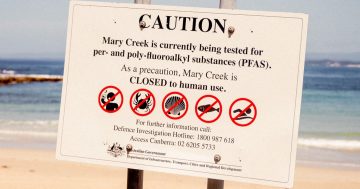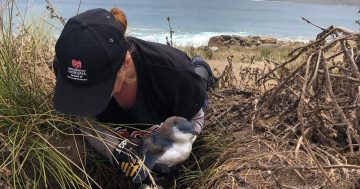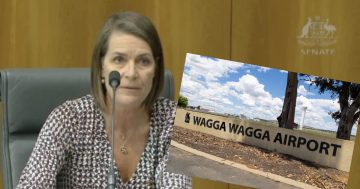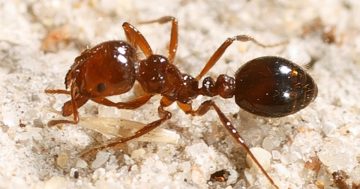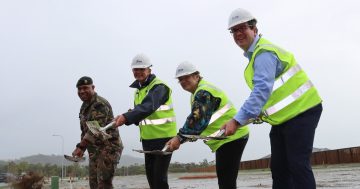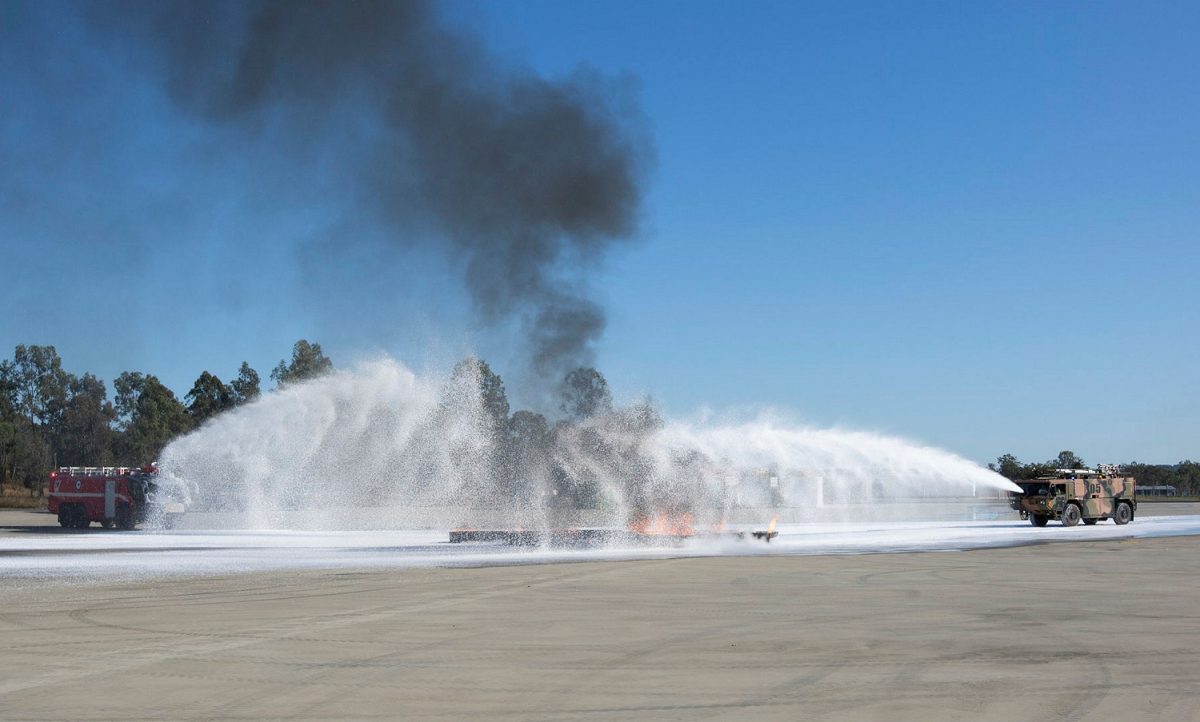
Contamination to the soil and groundwater around Defence bases has been attributed to the use of aviation firefighting foam. Photo: ADF.
An independent review into the effects the use of per- and polyfluoroalkyl substances (PFAS) on Defence bases has had on surrounding communities has been launched.
To be led by Jim Varghese AM, the review will focus on three of the worst-known sites of contamination: RAAF Base Williamtown/Newcastle Airport in NSW; the Army Aviation Centre Oakey west of Toowoomba in Queensland; and RAAF Base Tindal near Katherine in the Northern Territory.
Communities surrounding these bases have seen their groundwater affected by PFAS, a key heat-resistant group of chemicals commonly used in firefighting foam.
“Those three bases have been chosen because they have the most severe contamination of the 28 bases that are contaminated throughout the country,” Assistant Minister for Defence Matt Thistlethwaite told media at Newcastle Airport on Wednesday (20 September).
“They’re also representative of the issues that local communities are facing in dealing with PFAS contamination.
“Having said that, any member of the Australian community that lives around any Defence base or indeed has an interest in this issue is able to make a submission to this inquiry,” he said. “It is not restricted to communities around the three bases that are the focus of this inquiry.”
The government’s PFS.gov.au website says: “In Australia, the historical use of PFAS in firefighting foams has resulted in increased levels being detected at sites like airports, Defence bases, and other sites where firefighting training has been conducted, or where fire suppression systems are installed for extinguishing liquid-fuel fires”.
“We know that Defence’s historic use of PFAS has resulted in some diminished opportunities for land uses around some Defence bases,” the minister said.
“I have spoken directly with communities impacted by PFAS contamination to hear their concerns,” he added. “They want solutions. I would like to thank each community for this ongoing and productive consultation.”
The review will look to identify opportunities where adjacent land may be repurposed while better supporting those communities. It will be conducted in consultation with Commonwealth, state, territory and local governments, the affected communities, and industry, and is expected to be handed down early next year.
The PFAS contamination issues around Newcastle Airport have been known about for more than eight years. As a result, the local communities of Fullerton Cove, Williamtown and Salt Ash have seen land values drop markedly, and areas become unusable for farming or holding livestock. Fishing was also banned in Fullerton Cove, which comes off the North Arm of the Hunter River.
“I know my community has been dragged through many inquiries,” Meryl Swanson, the Federal Member for Paterson said. “I know that they are tired and they just want someone to stick up for them and do something.”
Mr Varghese added, “We have a good opportunity here. There’s a lot of information, a lot of data, which I’ll go through. And I’m very confident at the end of this review if you take a bigger picture and promote collaboration across all levels of government, community, and industry, we could come up with good ideas and perspectives.”
In late 2017, the government established an Expert Health Panel to advise it on the available evidence, including key international reports and views from the public and other stakeholders. It found that, although the scientific evidence in humans is limited, there was a “fairly consistent” link to several health effects, including liver, gastrointestinal tract and thyroid issues.
The establishment of the review comes nearly five years after the Parliamentary Joint Standing Committee on Foreign Affairs, Defence and Trade reported in December 2018 on its inquiry into the management of PFAS contamination in and around Defence bases.
In response to that inquiry, the then-Coalition government said that, while there was “still no consistent evidence of human health impacts”, it acknowledged “that communities in areas where PFAS contamination has been detected are very concerned about how this may affect them”.
At the time, it undertook to look at ways of reducing community exposure to PFAS by removing the sources of contamination, preventing PFAS from reaching people and water supplies, and providing alternative drinking water supplies.
It said it would invest in “closing the knowledge gaps on any potential health effects of PFAS”, and would develop “estate remediation strategies”.
Original Article published by Andrew McLaughlin on Riotact.




